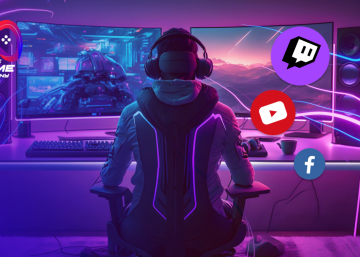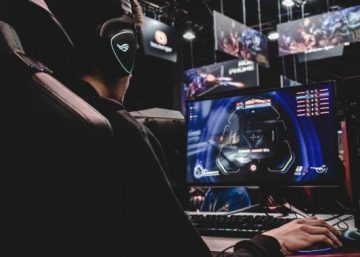Introduction
Gaming has become an integral part of the modern youth culture, profoundly influencing social dynamics and shaping the way young people interact and perceive the world. With the rapid advancement of technology and the widespread accessibility of various gaming platforms, the impact of gaming on the youth community has become a subject of intense scrutiny. This article delves into the multifaceted impact of gaming on youth culture, exploring its influence on social interactions, cognitive development, and the broader implications for the future of the younger generation.
Read more: The Impact of Gaming on Youth Culture and Social DynamicsThe Evolution of Gaming Culture
The transformation of gaming from a niche hobby to a mainstream cultural phenomenon has redefined the way young people engage with entertainment. The evolution of gaming culture has created a sense of belonging and community among gamers, leading to the formation of diverse online communities, forums, and social groups centered around shared gaming interests. This virtual camaraderie has facilitated the development of social skills, teamwork, and a sense of belonging, offering a platform for youths to connect with like-minded individuals globally.
The Influence on Social Dynamics
Gaming’s pervasive influence has both positive and negative implications for youth social dynamics. On one hand, collaborative gaming experiences foster teamwork, cooperation, and strategic thinking, nurturing valuable skills essential for real-life social interactions. On the other hand, excessive gaming and the prevalence of solitary gameplay can lead to social isolation, potentially hindering the development of crucial face-to-face communication skills and fostering an unhealthy dependence on virtual interactions.
Cognitive Impact and Behavioral Changes
Research indicates that gaming can have significant cognitive benefits, including improved problem-solving abilities, enhanced hand-eye coordination, and increased spatial awareness. However, excessive gaming, particularly when coupled with addictive gameplay mechanics, can potentially lead to detrimental behavioral changes such as decreased attention spans, desensitization to violence, and impaired academic performance. Understanding the delicate balance between the positive cognitive impacts and the potential risks is crucial in guiding the youth towards responsible and healthy gaming habits.
Gender Dynamics and Inclusivity
The impact of gaming on youth culture also extends to gender dynamics and inclusivity. Historically considered a male-dominated domain, the gaming industry has made strides in promoting gender inclusivity, offering diverse narratives and characters that resonate with a broader audience. This shift has encouraged greater participation from female gamers, fostering a more inclusive and diverse gaming community and challenging stereotypical gender norms within the gaming landscape.
The Future of Youth Culture in the Digital Era
As gaming continues to shape contemporary youth culture, it is imperative to recognize its evolving role in the digital era. The integration of virtual reality, augmented reality, and immersive gaming experiences presents both opportunities and challenges for the younger generation. Nurturing a healthy balance between digital engagement and real-world interactions is essential in safeguarding the holistic development of today’s youth and preparing them for the complexities of a rapidly evolving digital landscape.
Conclusion
The impact of gaming on youth culture and social dynamics is a complex phenomenon with multifaceted implications. While gaming has the potential to foster valuable skills and cultivate a sense of community, it also poses risks such as social isolation and cognitive challenges. To harness the positive influence of gaming, it is crucial to promote responsible gaming habits, encourage diverse and inclusive gaming environments, and prioritize a holistic approach to the development of the youth in the digital age.









